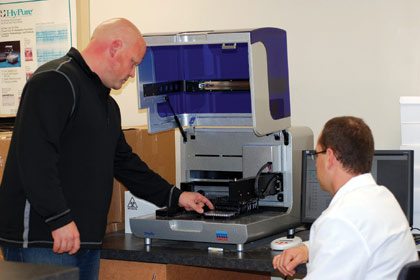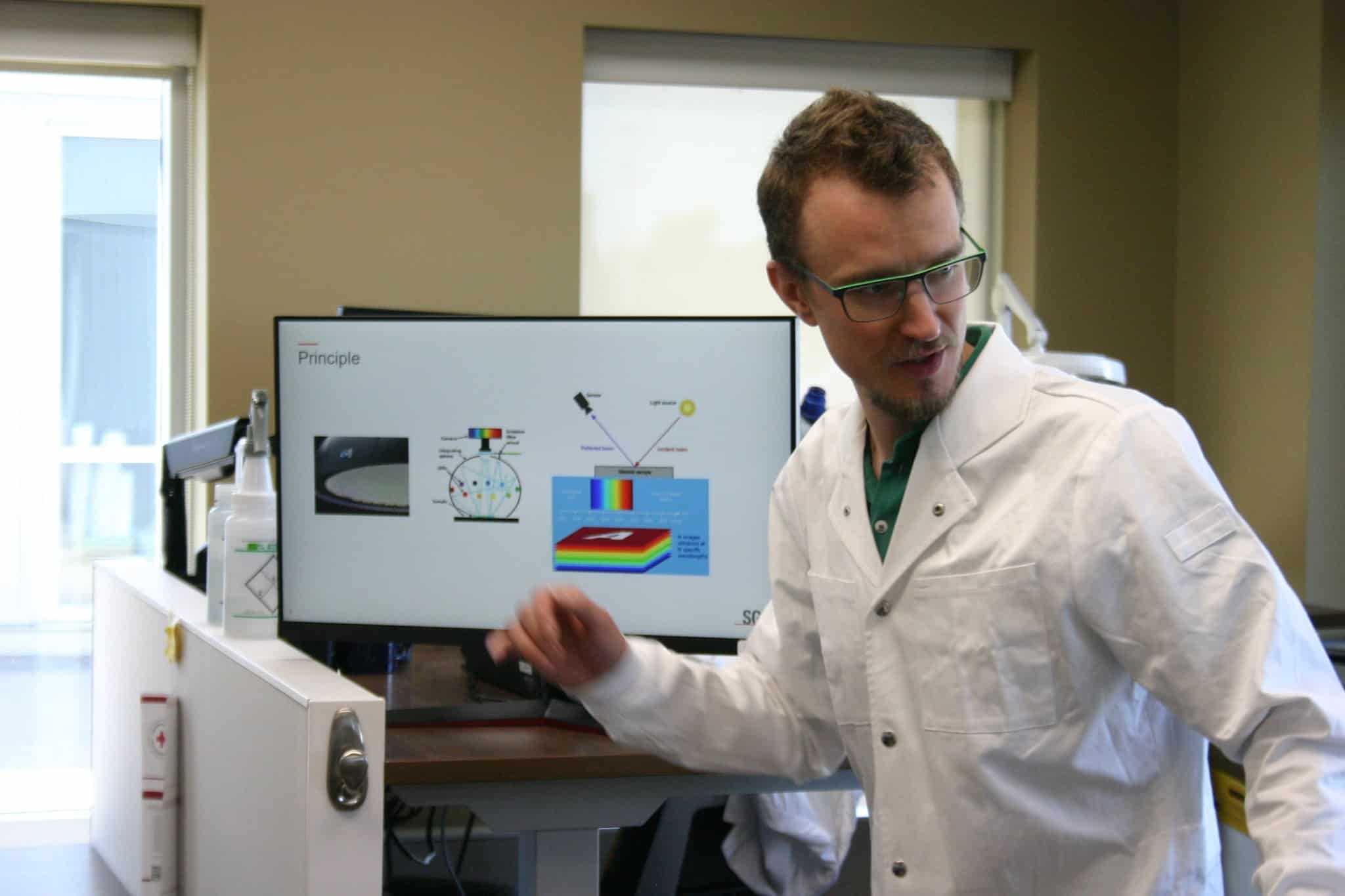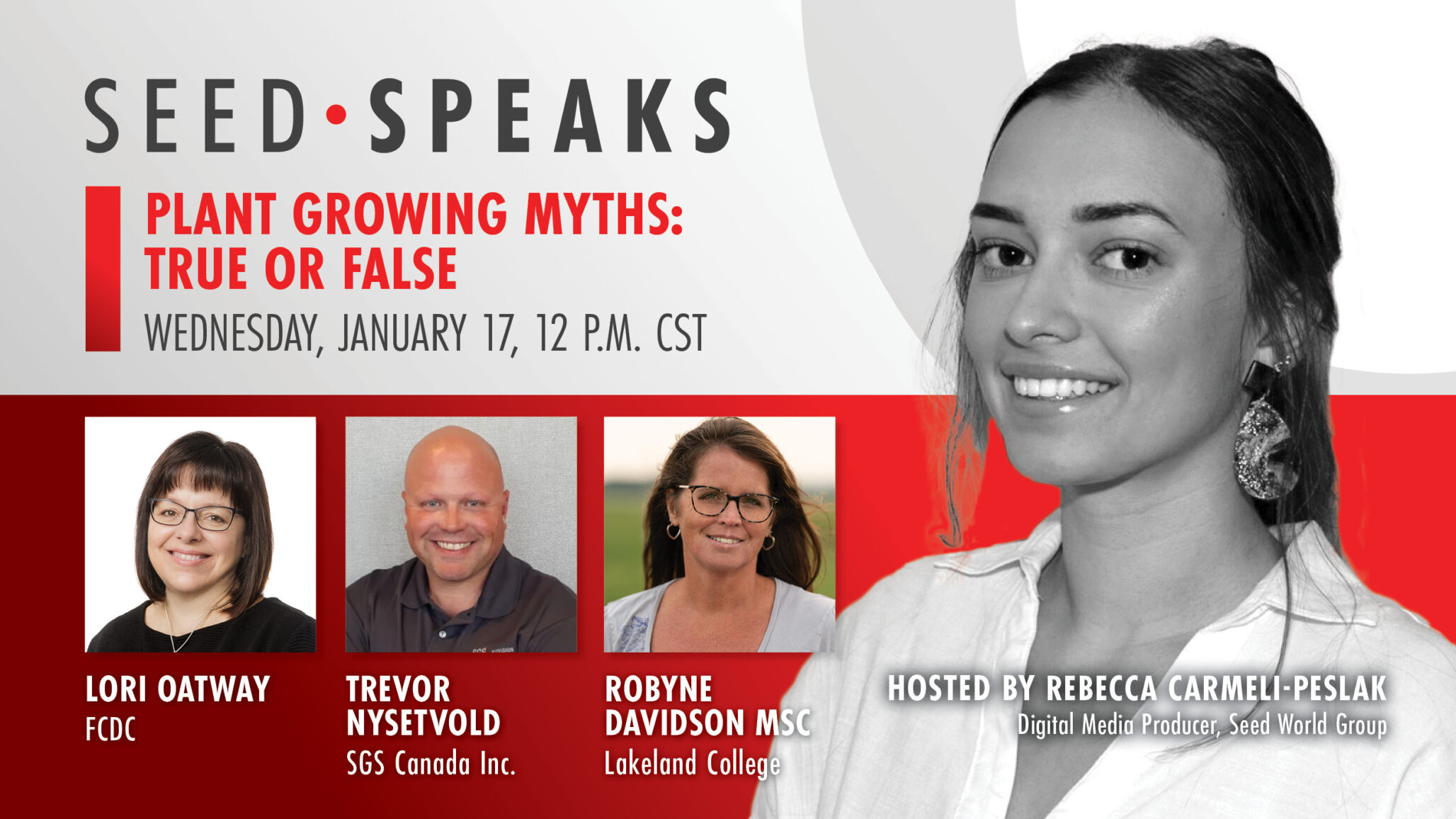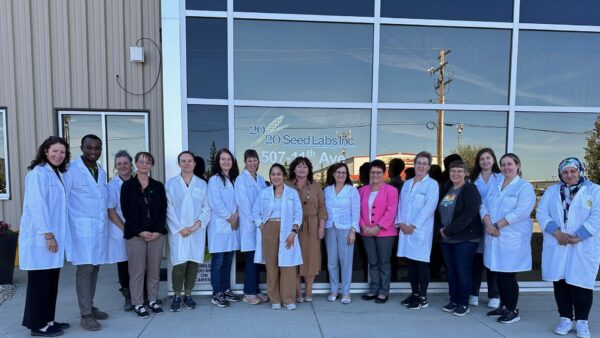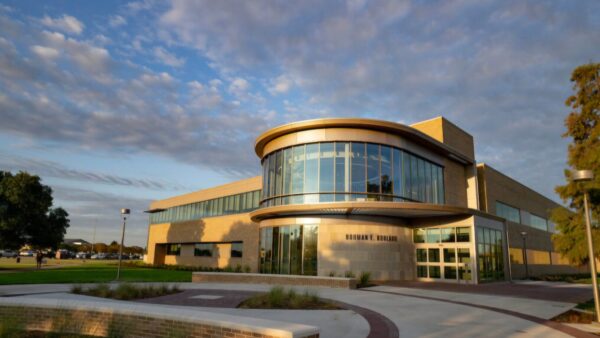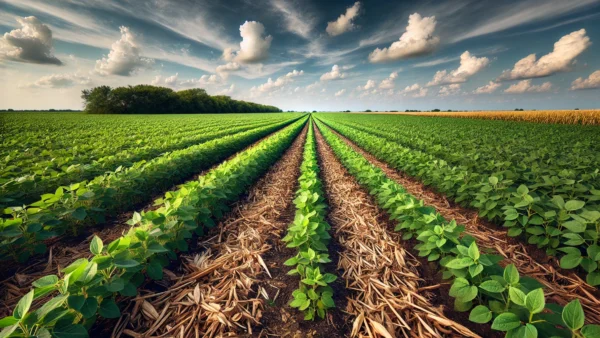Helping Seed Succeed
With services that range from advanced disease testing to analyzing plant DNA, lab-based businesses are establishing themselves as a critical player in the seed sector today.
As the seed industry is faced with the challenge of producing more with less, it will need the support of other players in the sector. Lab-based businesses, such as seed testing facilities and genomics labs, are stepping up to the plate in Canada in a big way.
|
Charles Pick is business development manager of DNA Landmarks. |
“The seed industry today is focused on feeding the world. Our part [as a lab-based business] is to be on the leading edge by providing the latest in seed quality technology. Whether that is to provide a more meaningful vigour test, an advanced disease test as in knowing what pathogens are going to be more harmful or more prevalent in next year’s crop or a varietal/trait identification profile or data management package to disperse those results, seed testing today has gone far beyond germination and purity,” says president of 20/20 Seed Labs, Sarah Foster.
Trevor Nysetvold, president of BioVision Seed Labs, agrees that lab-based services such as seed testing have expanded in recent years and will only continue to be more important. “Years ago, seed was tested for purity and germination and that was it,” he says. “Now growers and seed companies go far beyond the basic requirements to ensure that they are delivering a high-quality product to the consumer. BioVision’s unique service portfolio covers germination to genetic purity. We are constantly adding new services that meet the needs of the ever-changing seed industry.”
Meanwhile Charles Pick, business development manager of genomics lab DNA Landmarks, says the lab services his company provides act as a complement to work being done by plant breeders. “By analyzing DNA from tissue samples sent to us by the breeders, we can screen for specific traits of interest. This allows the breeders to do their jobs faster and more accurately which in turn delivers better varieties to the growers.”
Valuable Investment
The services offered by lab-based businesses are usually extra investments that a seed company or grower decides to make, whether it’s to improve seed quality — such as seed testing — or improve its R&D program — such as DNA analysis.
|
Sarah Foster is president of 20/20 Seed Labs. |
“DNA analysis is usually an additional investment in a seed company’s R&D program,” says Pick. “It’s true that marker-assisted selection allows breeders to drop poorly performing lines earlier from their program — a cost saving — however, this usually means that they screen even more plants. Like any good investment though, DNA analysis delivers an excellent return in the form of better genetics for the seed company and the grower.”
Foster says seed testing is a really simple way to ensure seed quality. “We are the first line of defense when it comes to observing the positives and the negatives of seed quality,” she says. “We are adept at being able to manage the risks. We lower costs by ensuring our client does not use a product that has failed to meet a grade or a specific quality parameter. We never overestimate the quality or ability of a seed lot to perform and always guide our clients to use seed to the best of its ability.”
However, Foster says the services provided by seed testing labs don’t end with just seed quality. “We will recommend seed treatments, correct seeding depth and soil temperature at time of seeding, seed drill rates and, once harvest commences, moisture, maturity and storage parameters for that specific crop. It is necessary today to go beyond reporting numbers — clients require facts and an explanation of test results. They also need support selling that product using the certified and pedigreed seed system,” she says.
Nysetvold says it’s all about allowing growers and seed companies to maximize profit. “We provide information that assists growers and companies in making the best management decisions. In its simplest form, seed testing is like insurance, where most years everything is fine but then that one seed lot comes along where seed testing identifies it as one of substandard quality. The cost of potentially using or selling poor seed covers the cost of testing several times over,” he says.
Trevor Nysetvold (left) is president of BioVision Seed Labs.
The Yield Question
Nysetvold says no lab can take responsibility for increasing yields: “Nothing that we, or any other lab, tests for can be directly linked to yield. What we do is offer the ability to test for a component of yield potential. We can tell you whether or not seed quality is going to be a limiting factor in achieving the highest possible yield,” he explains.
“If you’re armed with all the pieces of information that are necessary to produce a strong and healthy crop that is true to type you have a pretty good chance of increasing your yield expectations,” adds Foster. “Of course the grower has to hold up his end by ensuring that he’s checked a few boxes too — crop rotation, seed treatment, fertilizer, seed placement and so on.”
On the genomics end, the big plant science companies are investing significantly in improving plant yields by identifying specific genes that have a positive impact on yield. “The services DNA Landmarks provides at our lab could better be described as ‘protecting yield loss,’” says Pick. “For example, if you develop lines with better disease resistance, these healthy plants will provide better yield than diseased ones do.”
In addition, Pick says his lab is also looking at novel approaches to marker-assisted selection. “Instead of screening for individual traits of interest, we can use high-density arrays with thousands of DNA markers and evaluate the entire genome of a plant sample. This approach, called whole genome selection, offers the promise of screening for much more complex traits such as yield,” he explains.
On the Cutting Edge
Seed is a rapidly evolving industry, so it’s no surprise that these lab-based businesses supporting seed spend a lot of time making sure they stay on the cutting edge of new technology.
Foster says 20/20 Seed Labs has one test in particular that has really taken off in the last two years. “This is our fungal screen — a test that identifies and categorizes all seed-borne pathogens and fungi,” she says. “Once the profile is determined, we can offer a solution for seed longevity in storage, expected germination and type of seed treatment.” Foster says they are also now offering two new vigour tests for soybeans and canola. “Both are designed to expedite the movement and decision time of seed from the field to the bag,” she says.
Meanwhile Nysetvold says BioVision has recently added near-infrared testing, quantitative PCR, digital imaging, grain inspection and crop inspection to its service list. “We are continuously adding new services to offer to our clients,” he says.
Perhaps even more than seed testing, genomic technology is evolving rapidly. “DNA sequencing and marker analysis costs continue to drop,” says Pick. “This allows us to provide far more information about the genomics of plants than we ever could before. With this knowledge, breeders can manage complex, multigenic traits, they can develop better varieties, and they can do so much faster and more cost-effectively than they ever could before.”
“What we will be testing for in the future will be very different from what we are testing for today and that is very exciting.” — Trevor Nysetvold
Maintaining Quality is Key
Lab-based businesses are only going to play more of a role in the future; third-party verification is always going to be important.
“The seed industry is constantly changing; companies and growers are bringing new technology to the marketplace all the time. What we will be testing for in the future will be very different from what we are testing for today and that is very exciting. BioVision has a very bright future,” says Nysetvold.
And the benefits don’t end at the Canadian border. “Seed testing laboratories are continually striving to offer more here in Canada or abroad to remain competitive, but the important thing is to remain consistent and provide value,” adds Foster. “As we move toward higher value crops with specific genetic profiles, I think in the future it will be more important to harmonize seed testing protocols globally so that we will have an understanding with a client — the seed buyer — anywhere and a seed seller here. Canada is a huge seed producer and we need to maintain our quality status.”
Meanwhile, lab services like those that DNA Landmarks provides are also helping Canada maintain its status as a top seed provider. “The lower the cost of DNA marker technology gets, the wider spread its use becomes,” says Pick. “Today we are analyzing more species than ever before and we are providing novel services — both made possible by the drop in cost. This trend will continue making our lab services essential in the future for breeders and growers.”
Julie McNabb





